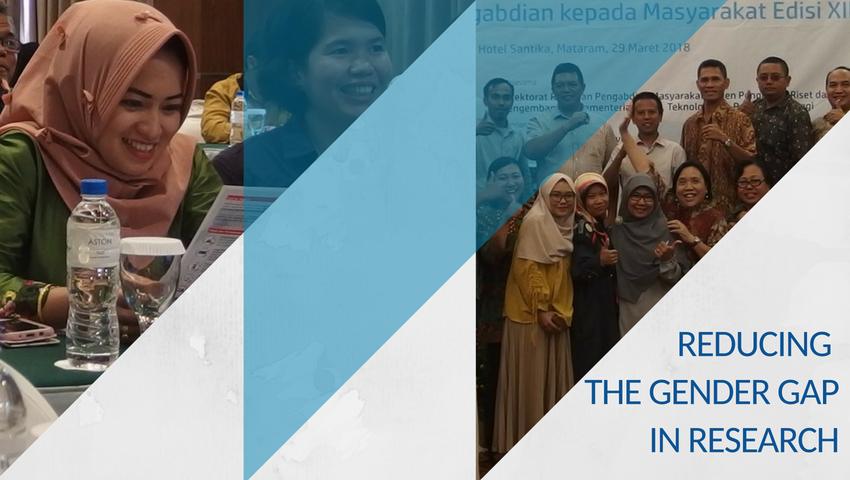Severity: 8192
Message: Methods with the same name as their class will not be constructors in a future version of PHP; MY_Lang has a deprecated constructor
Filename: core/MY_Lang.php
Line Number: 16

Researchers in Indonesian universities are being encouraged to incorporate gender and social inclusion perspectives in their applications for government research grants following the launch of the 12th edition of the Ministry of Research, Technology and Higher Education’s Grant Guidelines for Research and Community Engagement on March 20.
This is an important step in Indonesia’s efforts to mainstream gender and social inclusion in research produced by Indonesian academics.
The grant guidelines are used by more than 4,000 research and community engagement offices in universities across the country to prepare research proposals for grants offered by the Ministry of Research, Technology and Higher Education’s Directorate for Research and Community Engagement. Universities can submit applications until July.
Director for Research and Community Engagement Professor Ocky Karna Radjasa said the changes were the result of intensive discussions with research organisations and gender experts over the last year, facilitated by the Knowledge Sector Initiative (KSI).
“The guidelines include priority research topics related to gender and social inclusion for eight of the 10 research fields, including food and agriculture, transportation, marine and coastal affairs, and social sciences,” Radjasa said.
Topics that are priorities for the Ministry include research on women’s agricultural work, accessible transport, the role of women and minority groups in managing marine resources, accessible technologies, and prevention of violence against women, children, and ethnic or religious groups.
“The new guidelines will help to put gender and social inclusion issues on the research agendas of universities. This is particularly important given that gender and social inclusion is not a priority in the 2015-2045 National Research Master Plan (RIRN).,” Radjasa said.
To encourage research on gender and social inclusion issues, next year the Ministry plans to rank university research offices based on how they are addressing these issues in their research and community engagement activities. The Ministry would consider this ranking - together with the university’s accreditation level - in allocating research grants.
While the new guidelines promote mainstreaming of gender and social inclusion in research, there is still room for improvement in ensuring that universities are inclusive, Radjasa added.
According to Ministry data, in 2016/2017, women made up 43 percent of lecturers in Indonesia. However, it is still difficult for women to obtain more senior academic and management positions in universities.
National Development Target
Gender activist Lies Marcoes, who worked with the Ministry on the new grant guidelines, believes gender and social inclusion is an important part of research integrity.
“Without this perspective, research findings will provide an incomplete picture, and may even be misleading. This is particularly important when it comes to policy research,” she said.
Marcoes said a holistic understanding of gender and social inclusion would support the government’s efforts to meet its development targets, such as the Sustainable Development Goals (SDGs).
For example, in most parts of the country, women have primary responsibility for children’s health. Research can help build understanding of the challenges they face in providing nutritious food and accessing clean water which can be used to better target government programs.
Marcoes expressed concern about the lack of public awareness of gender and social inclusion, including in universities and research institutions, which she believes need to be providing policy-relevant research on gender and social inclusion to policymakers.
However, some research organisations were working hard to address this, including SMERU Research Institute, Cakra Wikara Indonesia and Sajaygo Institute. These organisations had been closely involved in discussions with the Ministry on the new grant guidelines.
With the guidelines now issued, Marcoes emphasised the importance of ensuring that they were implemented well. This would support Indonesian universities to build a stronger evidence base on gender and social inclusion issues and provide research to inform development policy.
Topic : gender social inclusion